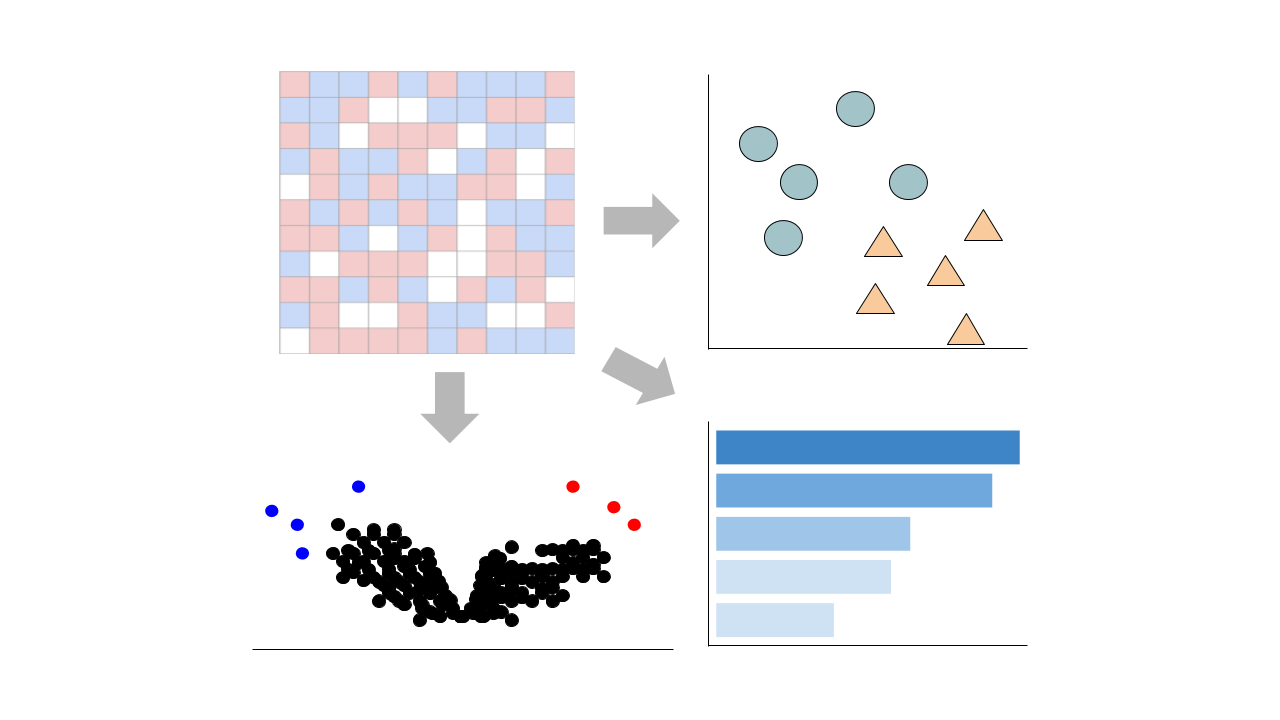 Gene counts are sourced from ARCHS4, which provides uniform alignment of GEO samples.
You can learn more about ARCHS4 and its pipeline here.
Gene counts are sourced from ARCHS4, which provides uniform alignment of GEO samples.
You can learn more about ARCHS4 and its pipeline here.
Select conditions below to toggle them from the plot:
| GROUP | CONDITION | SAMPLES |
|---|---|---|
| pancreatic ductal epithelioid carcinoma cells |
GSM5076863 GSM5076864
|
|
|
GSM5076859 GSM5076860
|
||
|
GSM5076861 GSM5076862
|
Submission Date: Feb 11, 2021
Summary: Non-mesenchymal pancreatic cells are a potential source for cell replacement therapies aiming to restore the endocrine capacity lost during diabetes mellitus. Although a highly complex network of transcription factors underlies the differentiation, growth, and specification of pancreatic precursors, several studies indicated that the transdifferentiation of non-mesenchymal cells can be achieved by epigenetic regulation. The induction of this epithelial-mesenchymal transition through the post-translational modification of histones, exerting control over both dynamic and long-term gene expression, is a promising approach for reprogramming them into mesenchymal cells. The small molecule and histone deacetylase inhibitor valproic acid was linked to the expression of key transcription factors of pancreatic lineage in epithelial cells and insulin transcription. However, the underlying mechanisms are not fully understood. To shed further light on the potential use of valproic acid for cellular reprogramming strategies, we studied its effects on human ductal Panc-1-cells employing next generation RNA sequencing, real-time PCR and protein analysis by ELISA and western blot. Our data indicate a significant regulation of cell cycle, cell adhesion, histone acetyltransferase and metabolism-related genes, and an epithelial–mesenchymal transition through acetylation of histone H3, resulting in the phenotype of a-cells, supporting the prospect of a therapeutic usage of epithelial pancreatic cells for the purpose of reprogramming into hormonesecreting endocrine cells.
GEO Accession ID: GSE166640
PMID: 35451037
Submission Date: Feb 11, 2021
Summary: Non-mesenchymal pancreatic cells are a potential source for cell replacement therapies aiming to restore the endocrine capacity lost during diabetes mellitus. Although a highly complex network of transcription factors underlies the differentiation, growth, and specification of pancreatic precursors, several studies indicated that the transdifferentiation of non-mesenchymal cells can be achieved by epigenetic regulation. The induction of this epithelial-mesenchymal transition through the post-translational modification of histones, exerting control over both dynamic and long-term gene expression, is a promising approach for reprogramming them into mesenchymal cells. The small molecule and histone deacetylase inhibitor valproic acid was linked to the expression of key transcription factors of pancreatic lineage in epithelial cells and insulin transcription. However, the underlying mechanisms are not fully understood. To shed further light on the potential use of valproic acid for cellular reprogramming strategies, we studied its effects on human ductal Panc-1-cells employing next generation RNA sequencing, real-time PCR and protein analysis by ELISA and western blot. Our data indicate a significant regulation of cell cycle, cell adhesion, histone acetyltransferase and metabolism-related genes, and an epithelial–mesenchymal transition through acetylation of histone H3, resulting in the phenotype of a-cells, supporting the prospect of a therapeutic usage of epithelial pancreatic cells for the purpose of reprogramming into hormonesecreting endocrine cells.
GEO Accession ID: GSE166640
PMID: 35451037
Visualize Samples
 Visualizations are precomputed using the Python package scanpy on the top 5000 most variable genes.
Visualizations are precomputed using the Python package scanpy on the top 5000 most variable genes.
Precomputed Differential Gene Expression
 Differential expression signatures are automatically computed using the limma R package.
More options for differential expression are available to compute below.
Differential expression signatures are automatically computed using the limma R package.
More options for differential expression are available to compute below.
Signatures:
Select conditions:
Control Condition
Perturbation Condition
Only conditions with at least 1 replicate are available to select
 Differential expression signatures can be computed using DESeq2 or characteristic direction.
Differential expression signatures can be computed using DESeq2 or characteristic direction.
This pipeline enables you to analyze and visualize your bulk RNA sequencing datasets with an array of downstream analysis and visualization tools. The pipeline includes: PCA analysis, Clustergrammer interactive heatmap, library size analysis, differential gene expression analysis, enrichment analysis, and L1000 small molecule search.

 Chatbot
Chatbot Single Gene Queries
Single Gene Queries
 Gene Set Queries
Gene Set Queries
 Bulk Studies
Bulk Studies
 Single Cell Studies
Single Cell Studies
 Hypotheses
Hypotheses
 Resources
Resources
 Contribute
Contribute
 Downloads
Downloads About
About
 Help
Help